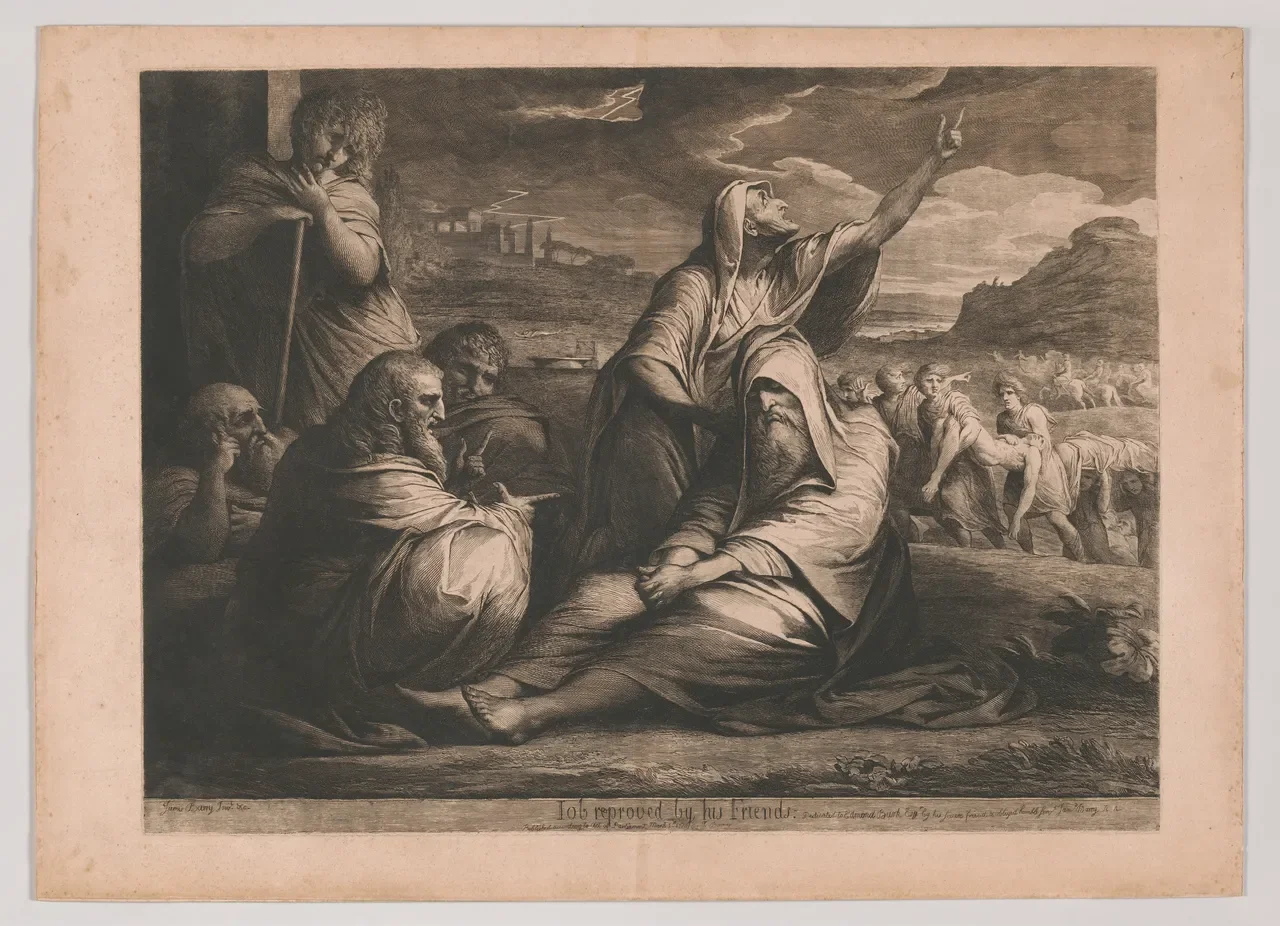Faith's Response to Sorrow

Then Job arose, and rent his mantle, and shaved his head, and fell down to the ground, and worshipped. Job 1:20
This is the response of Job to the news that he had just lost everything. Everything! And he had not only lost all his material possessions but also everyone of his children in a violent storm. Note well how this godly man reacts to this terrible and tragic turn of events.
First, he does not try to act as if he felt nothing. It is no sign of faith or self-control to feel nothing when we are afflicted. God does not call us to be stoic in our response to suffering. We do not sin when we grieve; as Calvin put it, men are not "drugged, that they should have no sadness, that they should not be at all offended when they experience some affliction." Thus, Job "arose, and rent his mantle, and shaved his head, and fell down to the ground." Grief is a natural, God-given response to misery and pain and we are not doing ourselves any good by suppressing it.
But second, this is not all he did. There is such a thing as grief without bounds. When our grief overflows in such a way that we can no longer hope in God or trust in his providence over us, we have passed from godly grief to sinful sorrow. So Job didn't just tear his clothes and shave his head and throw himself to the ground. For when he was on the ground, he worshipped God. We are not to sorrow as those who have no hope (1 Thess. 4:13). Can you worship God in your trial? Can you say, with Job, "Though he slay me, yet will I trust him" (Job 13:15)?
This then is the balance of faith. We are to "hear the rod and him that hath appointed it" (Micah 6:9). Grieve, yes, but grieve in hope, for our Lord will never leave us or forsake us. And we know the end of Job's story: "Ye have heard of the patience of Job and have seen the end of the Lord; that the Lord is very pitiful and of tender mercy" (Jam. 5:11). God will bring us through who trust in his Son, for our life is intertwined with his in an indissoluble union. If God raised him from the dead, we can be sure that we will be too, and we one day very soon be brought into the place in which there will be no more grief or sorrow and where every tear will be wiped from our eyes.